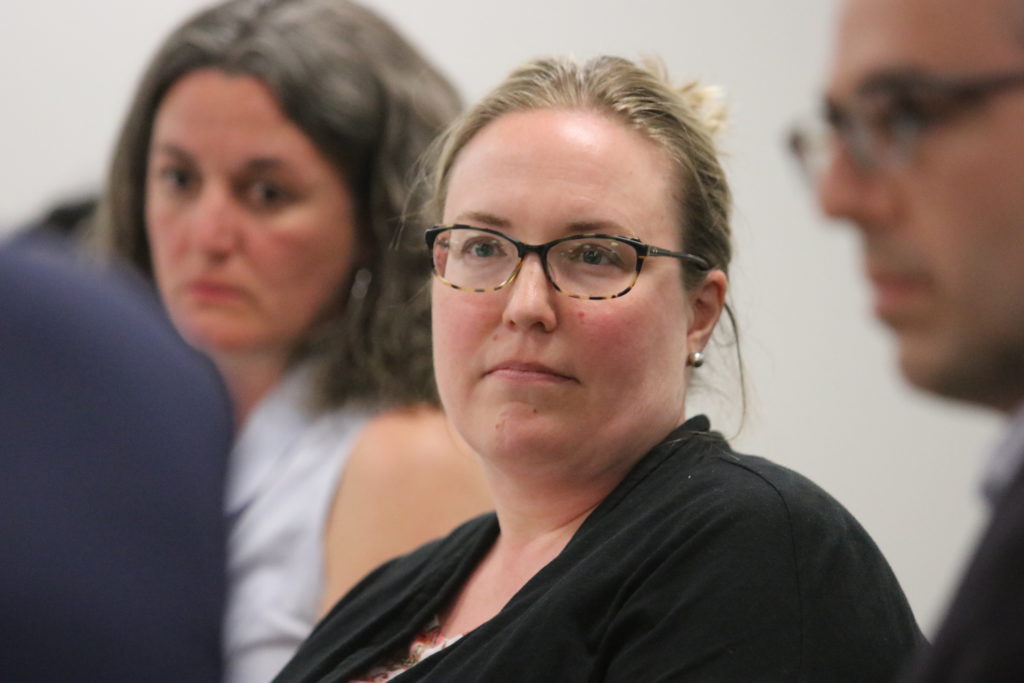Photo: The Select Board voting to present a $8.4 million override to voters at the town’s annual Election in April
After Belmont’s Select Board voted unanimously on Tuesday morning, Jan. 30 to place an $8.4 million override on the ballot at the annual Town Election, Board Chair Roy Epstein believed their decision will be seen by the town’s voters as the necessary course to take.
“We’re relying basically on our experiences what might work,” said Epstein after the vote. “Some people have indicated they would like it to be smaller [amount]. Others said they would like it to be larger. So I’m hoping that means we landed at the right place.”
After nearly six months of meetings, public events, and the decision to pegging how much the “ask” of residents came down to two competing figures: a $7.5 million override that would protect the current level of full-time positions in the town and schools, and $8.4 million, which will allow the town and schools to invest in specific area. In the end, the Select Board settled on what they consider is necessary to carry the town over the next three years.
“We appreciate the concerns that some residents have expressed to me,” said Mark Paolillo, who will be retiring from the board at the April election. “But I think [the override] is absolutely needed in order for us to continue to serve the residents and provide services that they expect.”
“This is not an irresponsible number,” said Elizabeth Dionne to the half dozen residents attending the Town Hall meeting. “It is a painful number.”
According to Jennifer Hewitt, the town’s financial director and assistant town administrator, with the town committed to the override, the town and school district can now release their fiscal year 2025 budgets, on Friday, Feb. 2. The Select Board, School and Warrant Committee will meet Thursday, Feb. 8 at 7 p.m. at Town Hall for the fourth Budget Summit at which time the fiscal ’25 budget will be presented.
The expected override is by no means a surprise, as the town has been struggling for more than a decade with a structural budget deficit created by ever-increasing expenses and a difficulty to raise sufficient revenue with annual property tax increases capped at 2 1/2 percent. Add to that, the board has inherited a number of costly such as a large and growing pension fund liability.
With a $6 million cliff facing the town in fiscal ’25, even a “level” budget that seeks to keep personnel and services at the previous year’s proportions would require a significant increase in funding.
While the funds will fill the budget deficit in the next three years, the board views the largest override in Belmont’s history in terms of an investment that in the long run will benefit both the town and schools. Epstein noted “a potential for restructuring certain activities to free up monies to deploy them more effectively.” Case in point: School Superintendent Jill Geiser plans to use the extra funding to lay a foundation with added Special Education staffing and planning with the goal to reduce the number of students being placed “out-of-district” for their schooling, which Dionne said is the greatest financial burdens facing future school budgets.
Agreeing to the larger override amount “is the starting point of making that investment with potential long-term benefits,” said Warrant Committee Chair Geoff Lubien.
“That’s why I believe the $8.4 million is necessary to make that even a possibility,” said Epstein.
The alternative to the override would be cataclysmic to all municipal and educational functions in Belmont. A forecasting exercise on the impact of a “no” vote would force painful cuts in staffing and programs in public safety, public works, library and all other town services while the schools would see significant reduction in staff as students will be without extra curriculum activities, the elimination of popular classes and higher students-to-teacher ratios.
“It’s really easy to destroy institutions, it’s very difficult to rebuild,” said Dionne. “If we don’t have a successful override, we will lose a cadre of talent we cannot replace easily. It will cost us far more to rebuild and to maintain.”
Acknowledging the large “ask” of residents, the Select Board will attempt to placate voters anxiety voting for the override by “hammering out” what is being called a compact with the community. Under this informal agreement, the board, school committee and other town entities will work together to implement policies – such as revamping zoning bylaws to facilitate business creation – and initiatives to manage expenses in an attempt to “bend the curve” of ever rising costs all the while look for ways to maximize revenues.
“What we [as a town] have to be … is faster, better, smarter,” said Dionne.
Under the compact, the Select Board will commit funds to specific public concerns. One discussed Tuesday is appropriating override dollars to repair and replace the town’s threadbare and increasingly unsafe sidewalks, which have been a lament among residents for nearly two decades.
The compact will also “force us to be more fiscally disciplined” using one-time funds such as free cash and from out-of-town sources such as government grants, according to Lubien.
